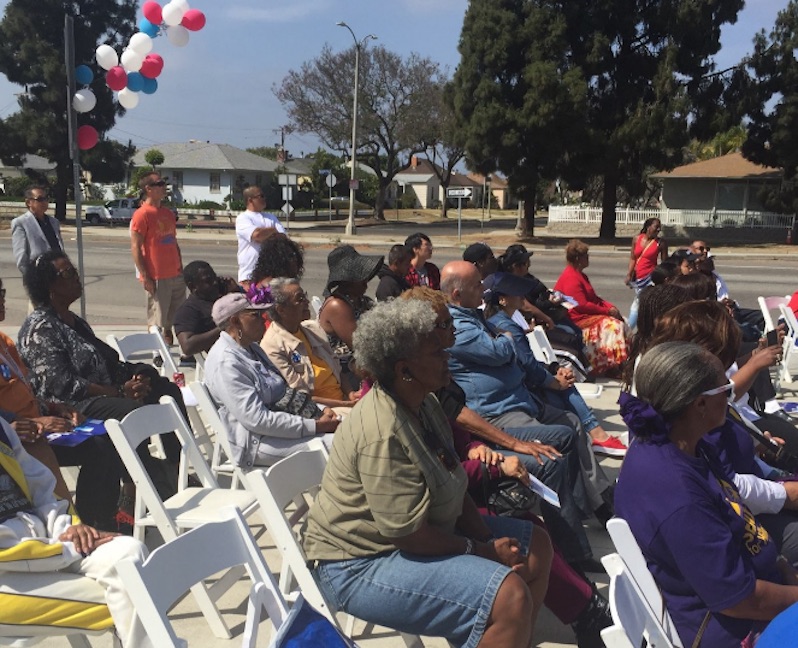In California, Hillary Clinton’s Strategy Depends on Black Voters
While African-Americans constitute less than 6 percent of the Golden State’s population, they can turn out at the polls in large numbers. While African-Americans constitute less than 6 percent of the Golden State’s population, they can turn out at the polls in large numbers. Supporters at a Hillary Clinton rally in South Los Angeles. (Bill Boyarsky / Truthdig)
1
2
Supporters at a Hillary Clinton rally in South Los Angeles. (Bill Boyarsky / Truthdig)
1
2

Supporters at a Hillary Clinton rally in South Los Angeles. (Bill Boyarsky / Truthdig)
Independent journalism is under threat and overshadowed by heavily funded mainstream media.
You can help level the playing field. Become a member.
Your tax-deductible contribution keeps us digging beneath the headlines to give you thought-provoking, investigative reporting and analysis that unearths what's really happening- without compromise.
Give today to support our courageous, independent journalists.






You need to be a supporter to comment.
There are currently no responses to this article.
Be the first to respond.